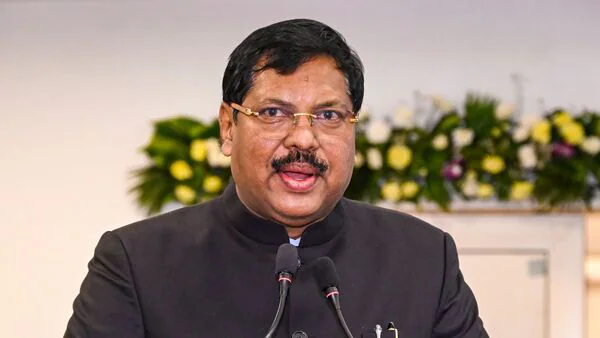
CJI Gavai flags ethical concerns over judges entering politics post-retirement, says, ‘attempt to gain favour with govt’
How did your country report this? Share your view in the comments.
Diverging Reports Breakdown
CJI Gavai flags ethical concerns over judges entering politics post-retirement, says, ‘attempt to gain favour with govt’
Chief Justice of India BR Gavai voiced concern about retired judges taking up government appointments or entering electoral politics shortly after stepping down. He warned that these post-retirement roles could lead to a perception that judicial decisions were made with an eye on future political or governmental opportunities. His remarks come amid long-standing debate over whether judges should be eligible for post-Retirement positions. The concern deepened in recent years by Supreme Court and high court judges take up roles offered by the executive soon after demitting office. The timing and nature of these engagements could undermine the public’s trust in the judiciary’s integrity, he said. He emphasised that he and many of his colleagues had “publicly pledged not to accept any post- retirement roles or positions from the government”
As reported by LiveLaw, Gavai remarked that such actions raise significant ethical issues and risk damaging public trust in the judiciary.
CJI Gavai warned that these post-retirement roles could lead to a perception that judicial decisions were made with an eye on future political or governmental opportunities.
Also Read: Former CJI Ranjan Gogoi nominated to Rajya Sabha
“If a judge takes up another appointment with the government immediately after retirement, or resigns from the bench to contest elections, it raises significant ethical concerns and invites public scrutiny. A judge contesting an election for a political office can lead to doubts regarding the independence and impartiality of the judiciary, as it may be seen as a conflict of interest or as an attempt to gain favour with the government,” CJI said, as reported by LiveLaw.
He further noted, “The timing and nature of such post-retirement engagements could undermine the public’s trust in the judiciary’s integrity, as it could create a perception that judicial decisions were influenced by the prospect of future government appointments or political involvement.”
CJI Gavai emphasised that he and many of his colleagues had “publicly pledged not to accept any post-retirement roles or positions from the government.”
This, he said, was “an effort to preserve the credibility and independence of the judiciary.”
His remarks come amid long-standing debate over whether judges should be eligible for post-retirement positions, a concern deepened in recent years by Supreme Court and high court judges taking up roles offered by the executive soon after demitting office.
Take a look at post-retirement appointments Justice Ranjan Gogoi was appointed to the Rajya Sabha in 2020, just four months after retiring as Chief Justice of India. His nomination was controversial due to his involvement in high-profile cases like the Ayodhya verdict and the Rafale deal, which were seen as favourable to the government.
Justice S. Abdul Nazeer was appointed as the Governor of Andhra Pradesh within 40 days of retiring from the Supreme Court. Nazeer was part of the bench that delivered the Ayodhya verdict and upheld the demonetisation policy.
Justice P. Sathasivam was appointed as the Governor of Kerala in 2014, soon after his retirement as Chief Justice of India.
Justice Ranganath Misra, post his retirement as CJI in 1991, was appointed the first Chairperson of the National Human Rights Commission in 1993 and later nominated to the Rajya Sabha in 1998.
Justice Baharul Islam retired from the Supreme Court in January 1983 and was nominated to the Rajya Sabha just a few months later—a move that drew criticism as a possible reward for clearing the then Bihar Chief Minister in a corruption case.
Justice M. Hidayatullah served as Vice President of India from 1979 to 1984, nine years after retiring as Chief Justice of India.
If a judge takes up another appointment with the government immediately after retirement, it raises significant ethical concerns and invites public scrutiny.
Justice Fathima Beevi served as a member of the National Human Rights Commission and later as the Governor of Tamil Nadu from 1997 to 2001 after retiring from the Supreme Court in 1992, she
